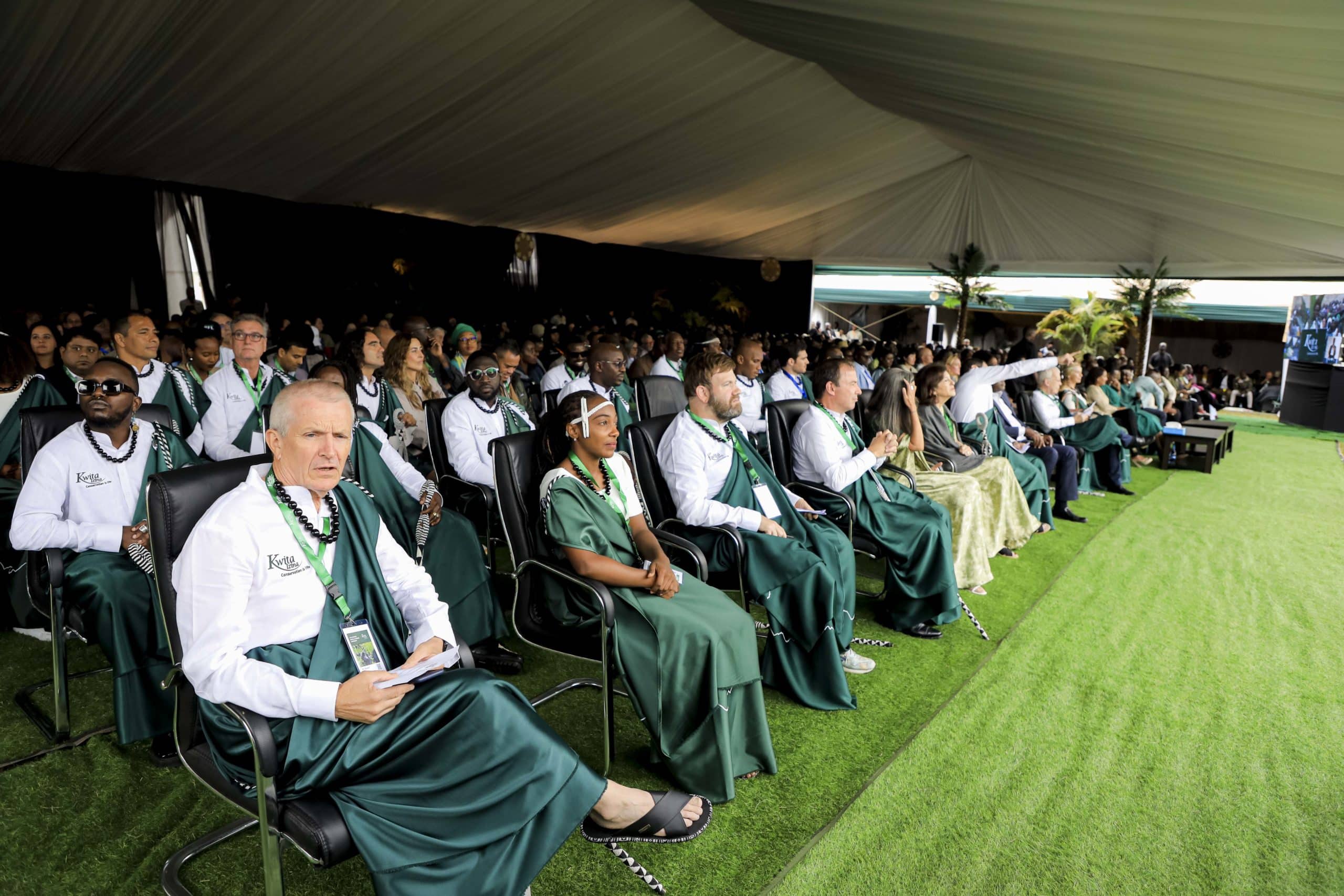For the first time in two years, the annual Gorilla Naming Ceremony, locally known as Kwita Izina, was held as a physical event on September 2 in Kigali, Rwanda, during which 20 newborn baby gorillas were named.
By Julius Bizimungu
“The name I give him is Ubwuzuzanye, which means Harmony since the restoration of harmony between nature, people and planet is the most critical issue facing humanity.”
Marking the 18th outing of the traditional custom (the event was held virtually the last two years), it drew together members of conservation organizations, renowned entrepreneurs and businessmen, philanthropists, athletes, and leaders of international organizations.
In addition to the Prince of Wales, Laurene Powell Jobs, the wife of the late Steve Jobs, Scottish billionaire Sir Ian Clark Wood, and Israeli businessman and founder of Pereg Ventures, Itzhak Fisher, were among the guests invited as ‘namers’.
Renowned athletes such as former Chelsea football player Didier Drogba, Juan Pablo Sorin of Paris Saint-Germain and Gilberto Silva of Arsenal Football Club were also among this year’s distinguished namers.
Inspired by the ancient Rwandan tradition of naming a baby soon after birth, during the Kwita Izina ceremony, infant mountain gorillas born in Rwanda receive their names.
The practice has been held since 2005 as a celebration of nature as well as the preservation of the endangered mountain gorillas, whose numbers have now increased to over 1,000.
The 20 baby gorillas named this year are members of the Noheli, Musilikali, Ntambara, Mutobo, Igisha, Susa, Kureba, Pablo, Sabyinyo, Muhoza, Amahoro, and Hirwa families.
Prince Charles, who was in Rwanda in June for the Commonwealth Heads of Government Meeting, attended the Kwita Izina ceremony virtually and was the first to name an adorable baby gorilla.
“The name I give him is ‘Ubwuzuzanye’, which means ‘Harmony’ since the restoration of harmony between nature, people and planet is the most critical issue facing humanity,” he said while naming the barely four-month-old male gorilla from the Muhoza family.
Prince Charles commended Rwanda’s efforts to safeguard wildlife for generations to come, citing what he witnessed during his prior visit to the country.
American billionaire and founder and President of Emerson Collective, Laurene Powell Jobs, named another newborn gorilla ‘Muganga Mwiza,’ loosely translated as ‘Good Doctor’.
Powell said the name was chosen to honor the late Dr Paul Farmer, the American medical anthropologist who had devoted himself to providing health equity across the world, and in countries such as Rwanda and Haiti.
“Conservation thrives where there’s safety and security. We now have a good problem to solve — the growing population needs a bigger home,” said Clare Akamanzi, Chief Executive Officer of the Rwanda Development Board.
Rwanda is already embarking on an ambitious project to expand Africa’s oldest park — the Volcanoes National Park. The initiative, supported by the African Wildlife Foundation, will expand the park by approximately 23%.
“This expansion of the national park, I hope, will ensure a bright future for the mountain gorillas that call it home,” Prince Charles noted.
Rwanda’s conservation story
Currently, mountain gorillas generate significant tourism revenue, providing direct economic benefits to communities. In 2019, just before the Covid-19 pandemic hit, Rwanda reportedly generated $498 million in tourism revenue, the majority of which was from tourists visiting the country to see its famed mountain gorillas.
Rwanda’s conservation and responsible tourism initiatives – including a successful trekking program to see the gorillas in their forest home – benefit animals and people. The tourism revenue is also shared with communities living around the park, and locals are employed as vets, researchers, trackers, porters and guides, while others work at safari lodges and camps
